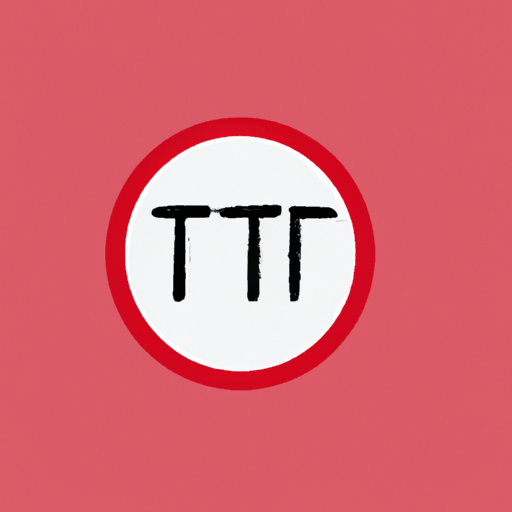If you find yourself facing intellectual property issues in Hurricane, Utah, it is imperative that you seek the assistance of a skilled and experienced lawyer in this area of law. With the ever-increasing complexity of intellectual property matters, navigating the legal landscape can be daunting. That’s where our intellectual property lawyer comes in. With a deep understanding of the intricacies of intellectual property law, and a track record of successfully representing businesses and business owners, our lawyer is dedicated to helping you protect your intellectual property rights. From trademarks to copyrights to patents, our lawyer has the expertise to provide you with reliable legal counsel and representation. Don’t let your intellectual property go unprotected – contact our lawyer today for a consultation.

What is Intellectual Property?
Intellectual Property (IP) refers to the legal rights that are granted to individuals or businesses for their creations or inventions. It is a broad term that includes various forms of intangible assets such as trademarks, copyrights, patents, trade secrets, and more. These rights enable the creators or owners to have exclusive control over their intellectual creations and prevent others from using or reproducing them without permission.
Definition of Intellectual Property
Intellectual Property refers to the intangible assets that are created by the human mind. It includes inventions, literary and artistic works, designs, symbols, names, and images used in commerce. These creations are protected by law, allowing the creators or owners to control and profit from their work.
Types of Intellectual Property
There are several types of Intellectual Property:
-
Trademarks: These are distinctive signs, such as logos, names, and symbols, used to identify and distinguish the goods or services of one business from another.
-
Copyrights: These protect original works of authorship, such as books, music, art, films, and software.
-
Patents: These grant exclusive rights to inventors for their inventions, preventing others from using, making, or selling the same invention without permission.
-
Trade Secrets: These protect confidential and proprietary information, such as formulas, processes, customer lists, and marketing strategies, that give a business a competitive advantage.
-
Industrial Designs: These protect the ornamental or aesthetic aspect of a product, such as its shape, pattern, or color.
-
Geographical Indications: These identify a product as originating from a specific geographic location and possessing qualities or a reputation associated with that location.
Importance of Protecting Intellectual Property
Protecting Intellectual Property is crucial for businesses for several reasons:
-
Exclusivity and Competitive Advantage: Intellectual Property protection allows businesses to differentiate themselves from competitors by having exclusive rights to their creations or inventions. This gives them a competitive advantage in the market.
-
Brand Reputation: Intellectual Property rights help businesses build and maintain their brand reputation. By protecting their trademarks and copyrights, businesses can ensure that consumers associate their products or services with quality and reliability.
-
Market Expansion and Licensing: Intellectual Property protection enables businesses to expand into new markets and license their rights to others. Licensing agreements can be a valuable source of revenue for businesses.
-
Preventing Unauthorized Use: Intellectual Property rights provide legal recourse against those who infringe on a business’s creations or inventions. This helps protect businesses from financial losses and reputational damage.
-
Innovation and Encouraging Creativity: Intellectual Property protection encourages innovation and creativity by providing incentives for individuals and businesses to invest in the development of new ideas and inventions.
Why Businesses Need an Intellectual Property Lawyer
Overview of Intellectual Property Issues for Businesses
Businesses face various Intellectual Property issues that can significantly impact their success and profitability. These issues include trademark infringement, copyright infringement, patent infringement, trade secret misappropriation, and unfair competition. Without proper protection and enforcement of their Intellectual Property rights, businesses risk losing their competitive edge and suffering financial losses.
Benefits of Hiring an Intellectual Property Lawyer
Hiring an Intellectual Property lawyer can provide numerous benefits for businesses, including:
-
Expert Advice and Guidance: Intellectual Property lawyers have a deep understanding of the complex laws and regulations surrounding Intellectual Property. They can provide expert advice and guidance tailored to a business’s specific needs and circumstances.
-
Protection of Rights: An Intellectual Property lawyer can help businesses identify and protect their valuable Intellectual Property assets. They can assist in registering trademarks and copyrights, filing patent applications, and implementing strategies to safeguard trade secrets.
-
Legal Representation: In the event of Intellectual Property disputes or litigation, an experienced lawyer can provide effective legal representation. They can handle negotiations, settlement discussions, and court proceedings to protect a business’s interests.
-
Due Diligence: Intellectual Property lawyers can conduct thorough due diligence to ensure that a business’s Intellectual Property rights are valid and enforceable. This is especially crucial in mergers, acquisitions, and licensing agreements.
-
Cost Savings: Investing in the services of an Intellectual Property lawyer can help businesses avoid costly legal disputes and potential infringement issues. By proactively protecting and enforcing their rights, businesses can save expenses in the long run.
How an Intellectual Property Lawyer Can Help Businesses Protect their Intellectual Property
An Intellectual Property lawyer can assist businesses in various ways to protect their Intellectual Property rights:
-
Conducting IP Audits: An IP lawyer can conduct comprehensive audits to assess a business’s Intellectual Property assets, identify potential vulnerabilities, and develop strategies to mitigate risks.
-
Trademark Registration and Protection: An IP lawyer can guide businesses through the process of trademark registration and help enforce trademark rights against infringers.
-
Copyright Registration and Protection: IP lawyers can assist businesses in registering their copyrights and taking legal action against copyright infringers.
-
Patent Application and Enforcement: IP lawyers have the expertise to draft and file patent applications, as well as enforce patent rights through litigation if necessary.
-
Trade Secret Protection: IP lawyers can help businesses implement effective measures to protect their trade secrets, including drafting non-disclosure agreements and confidentiality agreements.
-
Licensing and Contracts: An IP lawyer can negotiate and draft licensing agreements, distribution agreements, and other contracts related to Intellectual Property. They can ensure that a business’s interests are protected in these agreements.
-
Intellectual Property Litigation: In the event of Intellectual Property disputes, an IP lawyer can provide experienced representation in litigation proceedings. They can help businesses enforce their rights or defend against infringement claims.
Services Provided by an Intellectual Property Lawyer
Trademark Registration and Protection
Trademark registration is a critical step for businesses in protecting their brand identity. An Intellectual Property lawyer can guide businesses through the trademark registration process, ensuring that all legal requirements are met. They can conduct comprehensive trademark searches to determine the availability of a mark and provide advice on selecting strong and distinctive trademarks. In the event of trademark infringement, an IP lawyer can take legal action to protect a business’s trademarks.
Copyright Registration and Protection
Copyright protection grants creators exclusive rights to their original works of authorship. An IP lawyer can assist businesses in registering their copyrights with the appropriate government agency. They can guide businesses on copyright ownership issues, fair use considerations, and licensing agreements. In case of copyright infringement, an IP lawyer can enforce a business’s rights through legal action.
Patent Application and Enforcement
Patents protect inventions, granting inventors exclusive rights for a specified period. An Intellectual Property lawyer can help businesses navigate the complex process of patent application, including conducting patentability searches, drafting patent claims, and filing applications with the relevant patent office. They can also enforce patent rights through litigation, defending against infringement and protecting a business’s valuable innovations.
Trade Secret Protection
Trade secrets are valuable business assets that need to be protected. An IP lawyer can assist businesses in implementing robust trade secret protection measures, such as drafting non-disclosure agreements, non-compete agreements, and confidentiality agreements. They can also advise businesses on best practices for safeguarding trade secrets and handle legal disputes involving trade secret misappropriation.
Licensing and Contracts
Licensing agreements and contracts play a crucial role in the commercialization of Intellectual Property. An IP lawyer can negotiate and draft licensing agreements that protect a business’s interests while ensuring compliance with relevant laws and regulations. They can also assist businesses in drafting contracts related to Intellectual Property, such as distribution agreements, franchise agreements, and assignments of rights.
Intellectual Property Litigation
In the event of Intellectual Property disputes or litigation, an experienced Intellectual Property lawyer can provide effective representation. They can handle all aspects of litigation, including negotiations, settlement discussions, discovery, and trial proceedings. Whether a business needs to enforce its Intellectual Property rights or defend against infringement claims, an IP lawyer can protect their interests and seek favorable outcomes.
The Role of an Intellectual Property Lawyer in Business Transactions
Intellectual Property lawyers play a crucial role in various business transactions, ensuring that Intellectual Property assets are properly protected and managed. Here are some key areas where an IP lawyer’s expertise is essential:
Reviewing and Drafting Contracts
Intellectual Property lawyers can review and draft contracts related to commercial transactions, licensing agreements, and joint ventures. They can ensure that the contracts protect a business’s Intellectual Property rights and comply with relevant laws and regulations. By carefully reviewing the terms and conditions, an IP lawyer can identify potential risks and negotiate favorable terms for their clients.
Negotiating Licensing Agreements
Licensing agreements allow businesses to monetize their Intellectual Property assets by granting others the right to use or exploit them. An IP lawyer can negotiate licensing agreements on behalf of a business, ensuring that the terms are fair and advantageous. They can help businesses establish licensing structures, determine royalty rates, and address other critical considerations to maximize the value of their Intellectual Property.
Due Diligence for Mergers and Acquisitions
During mergers and acquisitions, Intellectual Property due diligence plays a vital role in assessing the value and risks associated with a business’s Intellectual Property assets. An IP lawyer can conduct comprehensive due diligence, reviewing patent portfolios, trademark registrations, copyright registrations, and trade secret protection measures. They can identify potential issues, such as infringement risks or undisclosed liabilities, and provide valuable insights to support informed decision-making.
Advising on Intellectual Property Assets Valuation
Intellectual Property assets can be valuable for businesses, contributing significantly to their overall worth. An IP lawyer can provide expert advice on valuing Intellectual Property assets, taking into consideration factors such as market demand, uniqueness, and revenue potential. By accurately evaluating Intellectual Property assets, businesses can make informed decisions regarding licensing, sale, or acquisition of Intellectual Property rights.
Intellectual Property Audits
Intellectual Property audits help businesses assess the strength and vulnerabilities of their Intellectual Property portfolios. An IP lawyer can conduct comprehensive audits, reviewing registrations, contracts, and internal processes. They can identify areas of improvement, potential risks, and suggest strategies to optimize Intellectual Property management. Intellectual Property audits can be proactive measures to ensure compliance, protect assets, and maximize the value of Intellectual Property.

Common Intellectual Property Issues Faced by Businesses
Businesses often encounter various Intellectual Property issues that can significantly impact their operations and future success. Here are some common Intellectual Property issues faced by businesses:
Trademark Infringement
Trademark infringement occurs when a business or individual uses a trademark that is confusingly similar to another trademark, causing a likelihood of confusion among consumers. Trademark infringement can harm a business’s reputation, lead to customer confusion, and dilute the value of a brand. An Intellectual Property lawyer can help businesses identify and address instances of trademark infringement through cease and desist letters, negotiations, or litigation.
Copyright Infringement
Copyright infringement occurs when someone uses, reproduces, distributes, or displays copyrighted work without permission from the copyright owner. This can include using copyrighted music, images, videos, or written content without proper authorization. Copyright infringement can result in financial losses and reputational damage for businesses. An IP lawyer can assist businesses in taking legal action against copyright infringers to protect their rights and seek appropriate remedies.
Patent Infringement
Patent infringement occurs when someone makes, uses, sells, or imports an invention that is covered by a valid patent without permission from the patent owner. Patent infringement can harm a business’s ability to profit from their inventions and stifle innovation. An Intellectual Property lawyer can help businesses enforce their patent rights through litigation, negotiations, or licensing agreements.
Trade Secret Misappropriation
Trade secret misappropriation occurs when someone uses, discloses, or acquires another party’s trade secret without authorization. Trade secrets can include valuable information such as formulas, processes, customer lists, and marketing strategies. Trade secret misappropriation can result in competitive disadvantages and financial losses for businesses. An IP lawyer can assist businesses in protecting their trade secrets through confidentiality agreements, non-disclosure agreements, and legal action against those who violate trade secret rights.
Unfair Competition
Unfair competition refers to practices that harm or deceive consumers and give one business an unfair advantage over competitors. This can include false advertising, trade dress infringement, misleading marketing, or unauthorized use of another business’s Intellectual Property. Unfair competition can damage a business’s reputation and undermine fair market competition. An IP lawyer can help businesses combat unfair competition by initiating legal action and seeking appropriate remedies.
How to Choose the Right Intellectual Property Lawyer for Your Business
Choosing the right Intellectual Property lawyer is crucial for businesses to receive effective guidance and protection for their Intellectual Property rights. Here are some factors to consider when selecting an IP lawyer:
Experience and Expertise
Look for an Intellectual Property lawyer with substantial experience in handling Intellectual Property matters. Consider their track record, their success in handling similar cases, and their expertise in the specific area of Intellectual Property that your business requires assistance with. A lawyer with a deep understanding of Intellectual Property laws and regulations will be better equipped to protect your rights effectively.
Industry Knowledge
Look for a lawyer who has relevant industry knowledge or specializes in your specific field. Intellectual Property laws can vary depending on the industry, and having a lawyer who understands the nuances and specific challenges of your industry can be highly advantageous. They will be familiar with industry practices, trends, and legal precedents that can impact your Intellectual Property rights.
Client Testimonials and References
When choosing an Intellectual Property lawyer, consider their reputation and what their past clients have to say about their services. Look for client testimonials, case studies, or references that can provide insights into the lawyer’s professionalism, expertise, and ability to deliver results. Positive feedback and recommendations from satisfied clients can help you make an informed decision.
Communication and Accessibility
Effective communication is essential when working with an Intellectual Property lawyer. Look for a lawyer who is responsive, clear in their communication, and accessible when you have questions or concerns. A lawyer who keeps you informed about the progress of your case and takes the time to explain complex legal concepts can make the legal process more manageable and less stressful.
Fee Structure
Discuss the fee structure and payment arrangements with potential Intellectual Property lawyers. Consider whether they offer flexible fee arrangements, such as hourly rates or fixed fees, and whether they provide detailed cost estimates for their services. Transparency in fee structures will help you understand the cost implications and make an informed decision based on your budget and the value you expect from their services.
Frequently Asked Questions about Intellectual Property Law
What is the difference between a trademark and a copyright?
A trademark is a symbol, word, or phrase used to identify and distinguish a company’s goods or services from those of others. It provides exclusive rights to use the mark in connection with specific goods or services to prevent consumer confusion. On the other hand, copyright protects original works of authorship, such as literature, music, art, or software. Copyright gives the creator exclusive rights to reproduce, distribute, display, or perform the copyrighted work.
How long does trademark protection last?
Trademark protection can last indefinitely as long as the mark continues to be used in commerce and the necessary maintenance filings are made. Initially, trademarks are registered for ten years, and they can be renewed indefinitely for additional ten-year periods.
Can I trademark a domain name?
It is possible to obtain trademark protection for a domain name if it meets certain requirements. The domain name must be used in connection with specific goods or services and must be distinctive enough to identify and distinguish those goods or services. However, obtaining trademark protection for a domain name can be complex, and it is advisable to consult with an Intellectual Property lawyer for guidance.
What are the benefits of copyright registration?
While copyright automatically exists upon the creation of an original work, registering the copyright with the U.S. Copyright Office provides additional benefits. Copyright registration establishes a public record of the copyright claim, making it easier to enforce rights in case of infringement. It also enables the copyright owner to seek statutory damages and attorney’s fees in a copyright infringement lawsuit.
What happens if someone infringes on my intellectual property rights?
If someone infringes on your Intellectual Property rights, you have various legal remedies available. You can send a cease and desist letter demanding that the infringing party stop using your Intellectual Property. If the infringement continues, you can file a lawsuit seeking injunctive relief to stop the infringing activities and potentially recover damages for any harm caused.
How to Protect Your Intellectual Property Rights
Protecting your Intellectual Property rights is crucial for businesses to maintain their competitive edge and ensure the long-term success of their creations or inventions. Here are some essential steps to protect your Intellectual Property:
Register Your Intellectual Property
Registering your Intellectual Property, such as trademarks, copyrights, and patents, provides legal protection and strengthens your rights. Registering trademarks with the relevant government agency establishes your ownership and provides an official record of your mark. Copyright registration creates a public record of your work and enables you to seek additional protections in case of infringement. Patents must be granted by the patent office through a formal application process.
Use Non-Disclosure Agreements (NDAs)
Non-disclosure agreements (NDAs) are essential tools for protecting your trade secrets and confidential information. NDAs establish a legal obligation for parties to keep certain information confidential and prohibit them from sharing or using that information for their benefit. Implementing NDAs can help safeguard your trade secrets and prevent unauthorized disclosures.
Monitor and Enforce Your Intellectual Property Rights
Regularly monitor the marketplace to identify any potential infringements of your Intellectual Property rights. Utilize online monitoring tools, conduct periodic searches, and enlist the assistance of an Intellectual Property lawyer to help identify and address any infringements promptly. If you discover an infringement, take appropriate action to enforce your rights, such as sending cease and desist letters or pursuing legal action if necessary.
Educate and Train Employees
Educate your employees about the importance of Intellectual Property rights and the measures in place to protect them. Establish clear policies and procedures regarding the handling of confidential information and the use of Intellectual Property assets. Regular training sessions can ensure that your employees understand their obligations and reduce the risk of inadvertent disclosure or infringement.
Regularly Update and Review IP Strategy
Intellectual Property landscapes and market dynamics can change over time. It is essential to regularly review and update your Intellectual Property strategy to ensure that it aligns with your business goals and the evolving competitive landscape. Stay informed about changes in Intellectual Property laws and regulations and adapt your strategy accordingly to maximize the value of your Intellectual Property assets.

Real-Life Case Study: Successful Intellectual Property Dispute Resolution
Background of the Case
In a recent case, XYZ Corporation, a tech startup specializing in software development, discovered that a competitor had allegedly copied their proprietary code. This competitor, ABC Inc., had launched a similar product with striking similarities to XYZ Corporation’s software. XYZ Corporation believed that ABC Inc. had misappropriated their trade secrets and infringed upon their copyright.
Challenges Faced
XYZ Corporation faced several challenges in pursuing their Intellectual Property claims against ABC Inc. They needed to gather sufficient evidence to prove that ABC Inc. had access to their proprietary code and had copied it without authorization. Additionally, XYZ Corporation needed to demonstrate that their software was eligible for copyright protection and that ABC Inc.’s product constituted copyright infringement. The complex legal process and the potential risks associated with legal action against a competitor posed additional challenges.
Strategies Employed
To address these challenges, XYZ Corporation engaged the services of an experienced Intellectual Property lawyer. The lawyer began by conducting a thorough investigation to gather evidence of the alleged misappropriation and infringement. They analyzed the source code of both XYZ Corporation’s software and ABC Inc.’s product to identify similarities and assess the degree of infringement.
The lawyer also advised XYZ Corporation on the steps they needed to take to strengthen their Intellectual Property protection going forward. They helped XYZ Corporation implement robust internal processes to safeguard their trade secrets, such as access controls, restrictions on information sharing, and non-disclosure agreements.
Outcome and Resolution
With the assistance of their Intellectual Property lawyer, XYZ Corporation filed a lawsuit against ABC Inc. for trade secret misappropriation and copyright infringement. The lawyer represented XYZ Corporation throughout the legal proceedings, including settlement negotiations and court hearings. The case was successfully resolved through mediation, resulting in a favorable settlement for XYZ Corporation.
Lessons Learned
This case highlights the importance of proactive measures to protect Intellectual Property assets and the value of engaging an experienced Intellectual Property lawyer. By promptly addressing the alleged misappropriation and infringement, XYZ Corporation was able to protect their trade secrets, secure their copyright, and successfully resolve the dispute.
Conclusion
Intellectual Property law plays a vital role in protecting businesses’ creations, inventions, and competitive advantage. From patents to trademarks, copyrights to trade secrets, Intellectual Property rights are crucial for businesses to thrive in today’s competitive marketplace. To navigate the complex landscape of Intellectual Property law and effectively protect their rights, businesses need the expertise of an Intellectual Property lawyer.
An Intellectual Property lawyer can provide valuable guidance, protection, and representation for businesses in all aspects of Intellectual Property, including registration, enforcement, licensing, and litigation. They help businesses safeguard their Intellectual Property rights, defend against infringements, and maximize the value of their Intellectual Property assets. By partnering with an experienced and knowledgeable Intellectual Property lawyer, businesses can secure their Intellectual Property rights and gain a competitive edge in their respective industries.



